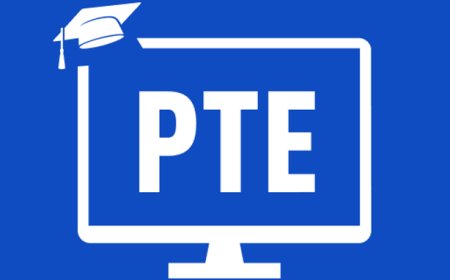Don’t Get Scammed: Choosing the Best Homework Help
Let’s unpack how to identify trustworthy help and avoid pitfalls that could harm your grades and future.

The demand for academic assistance has exploded, but so have scams targeting overwhelmed students. While many consider options to pay someone to do my homework, shady services often deliver subpar work or disappear after payment. Worse, some companies offering to take my class for me steal personal data or blackmail users. Lets unpack how to identify trustworthy help and avoid pitfalls that could harm your grades and future.
Smart Strategies to Vet Homework Help Services
Before choosing a homework help service, check for verified reviews, academic credentials of tutors, and clear refund policies. Look for platforms that offer transparency in pricing and communication, and that allow you to preview samples or tutor qualifications. A legitimate service should prioritise learning, not just quick answers.
? Verify Credentials and Expertise
Legitimate services employ verified experts with degrees in their fields. Ask for proof, like tutor bios or sample work. Check if they specialise in your subject, engineering help requires different skills from literature reviews. Steer clear of websites that make ambiguous claims, such as "top-rated tutors" who lack qualifications. Before committing, check your qualifications by contacting customer service.
? Understand the Legal and Ethical Risks
Using services to take my class for me violates most academic integrity policies. If caught, consequences range from failing grades to expulsion. Even homework help can cross ethical lines if too directive. Opt for tutoring that teaches concepts, not pre-written answers.
? Read Reviews Across Multiple Platforms
Scammers often post fake testimonials on their sites. Cross-check reviews on Trustpilot, Reddit, and Sitejabber. Look for detailed feedback mentioning communication, deadlines, and originality. Be wary of overly positive or identical reviews; these signal fraud. If possible, reach out to past clients directly via forums for honest opinions.
? Ensure Secure Payment Options
Secure payment systems like PayPal or Stripe are used by reputable services. Steer clear of sites that require untraceable means, such as wire transfers or gift cards. Check for HTTPS in the website URL and a privacy policy outlining data protection. Never share passwords or sensitive personal information, even if pressured.
? Test Communication Channels
Reliable services offer transparent communication with tutors or support teams. Send a test query via chat or email. Gauge response time and clarity. If they evade questions about plagiarism checks or deadlines, walk away. Clear, prompt communication is a hallmark of trustworthy providers.
? Demand Plagiarism Guarantees
Ethical services provide originality reports via tools like Turnitin or Copyscape. Insist on a money-back guarantee if work is plagiarised. Avoid companies that dismiss this request or claim 100% unique work without proof. Scammers often recycle old essays or paraphrase poorly, risking academic penalties.
? Avoid Too Good to Be True Promises
Beware of services offering overnight delivery for complex tasks or prices far below market rates. A 10-page dissertation in 24 hours for $50 is a red flag. Quality work requires time and expertise; legitimate tutors charge accordingly. Compare prices across platforms to spot outliers.
? Check for Revisions and Support
Even top-tier services may need to tweak their work per your feedback. Confirm revision policies how many are free? How quickly do they respond? Scammers often ghost clients after payment or charge extra for minor edits. Test their support by requesting a small adjustment upfront.
? Verify Company History and Transparency
Research how long the service has operated. Scams often use new domains or rebrand after complaints. Look for physical addresses, phone numbers, and social media profiles. Use WHOIS to check domain registration dates if under a year old; proceed cautiously.
? Start Small to Build Trust
Place a small order first, like editing a paragraph or solving one math problem. Assess quality, adherence to guidelines, and communication before committing to larger tasks. This minimises financial risk and reveals the services true reliability.
Red Flags You Should Never Ignore
Be cautious of services that promise guaranteed grades, deliver work suspiciously fast, or lack verifiable contact information. If a site has poor grammar on its homepage or avoids using secure payment gateways, its a major warning sign. Always avoid services that encourage dishonesty or require login access to your academic portals.
? Upfront Payment Demands
Legit services often take partial payments, releasing funds after you approve the work. If they demand full payment before sharing a draft, exit immediately.
? No Samples or Portfolios
Refusal to provide writing samples or tutor qualifications suggests they have none. Reputable companies showcase their best work to attract clients.
? Aggressive Marketing Tactics
Pop-ups claiming 90% off if you act now! or unsolicited emails push urgency to prevent research. Quality services rely on reputation, not pressure.
? Poor Grammar or Website Errors
Sloppy websites with spelling mistakes signal unprofessionalism. If they cant proofread their content, theyll likely botch yours.
Ethical Alternatives to Risky Services
Instead of outsourcing your assignments, consider using tutoring platforms, writing centres, or peer study groups. These options help you build skills while receiving guidance tailored to your learning needs. Many universities also offer free resources and academic coaching that can help without compromising your integrity.
? University Tutoring Centres
Most schools offer free, subject-specific tutoring. These sessions build skills without ethical concerns. Scheduling regular visits can also boost accountability and academic confidence.
? Online Learning Platforms
Users can find self-paced tutorials through websites such as Khan Academy and Coursera. Master tough topics independently with structured lessons. These platforms often include quizzes, forums, and progress tracking to keep you engaged.
? Study Groups
Students should work together to distribute assignments among each other and exchange educational insights with one another. Teaching others reinforces your understanding. Study groups also provide emotional support during stressful academic periods.
? Time Management Coaching
The ability to plan will minimise late-night stressful situations. Students can find assignment and deadline management through the MyStudyLife application. Some schools offer coaching sessions to help students personalise time-blocking and prioritisation methods.
Final Thoughts
When workload demands escalate, students feel pressured to pay someone, but the many risks surrounding this approach make short-term relief unsustainable. Internet scams have the potential to damage your academic performance while simultaneously emptying your bank account and threatening your privacy. By vetting services rigorously and prioritising ethical help, you safeguard your education and integrity. Remember: True academic success comes from learning, not shortcuts.
References
Flugge, V., 2024. Cheaters Never Prosper: The Legal Liability and Ethical Responsibility of" Homework Help" Sites. Notre Dame JL Ethics & Pub. Pol'y, 38, p.177.
BAW.2022. How Academic Help Providers Save the Students Future?. Online Available at: <https://bestassignmentwriter.co.uk/blog/how-academic-help-providers-save-the-students-future/> (Accessed: 08 May 2025).

























